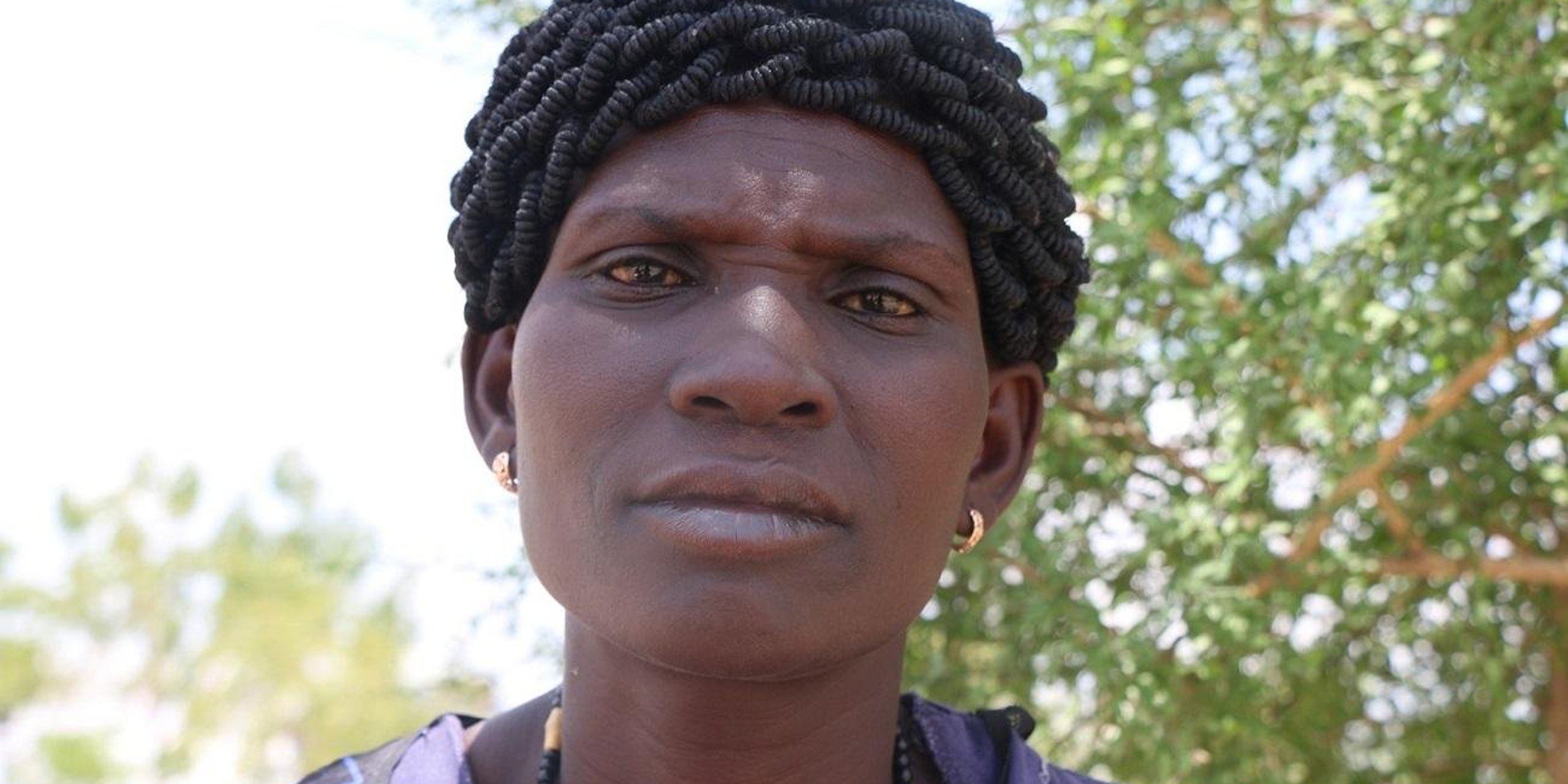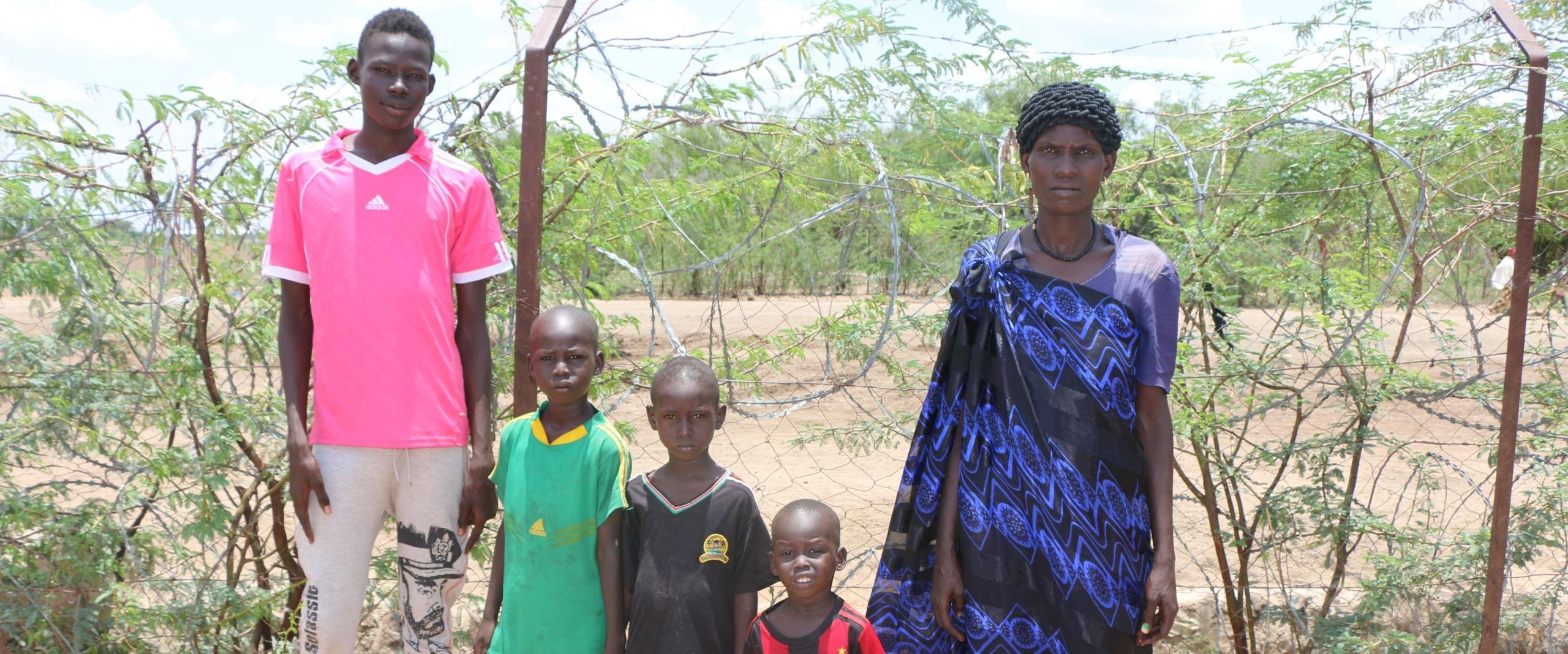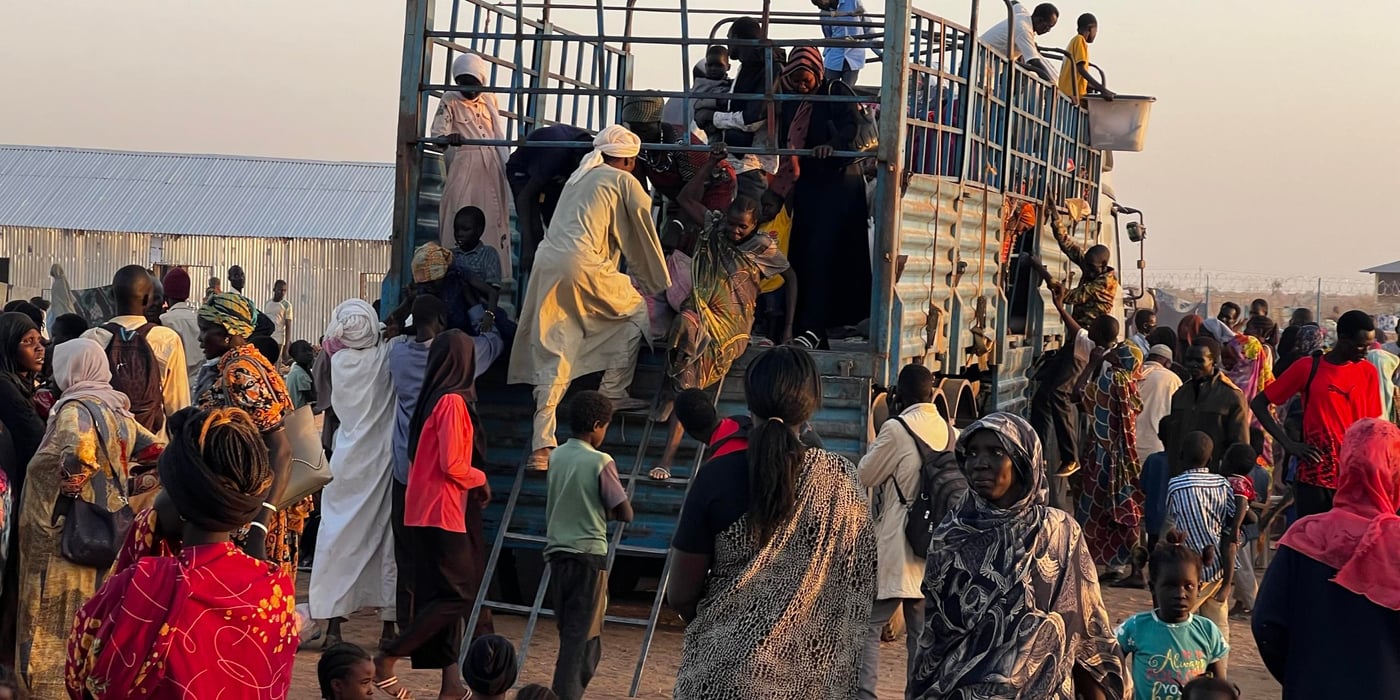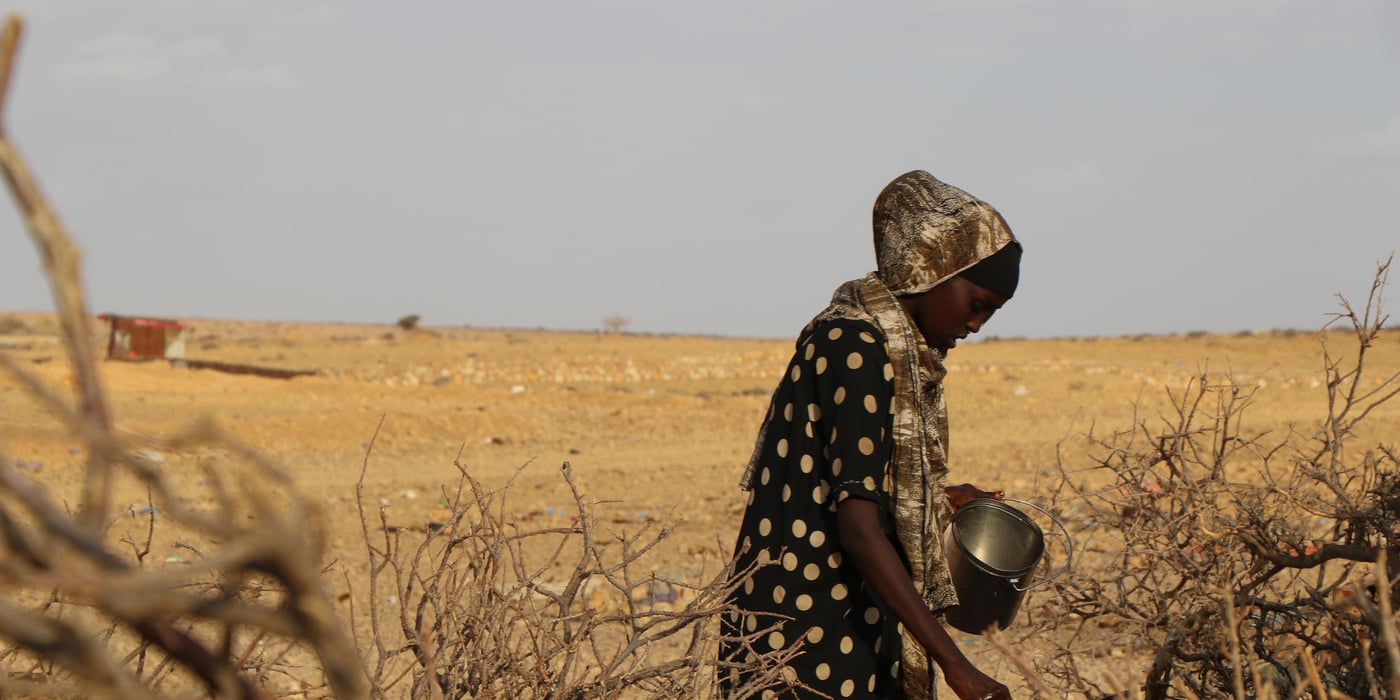
After her husband’s death a year ago, Nyagoul found herself unable to put food on the table for her seven children. She decided to take her family to Kenya, where they now reside in Kakuma Refugee Camp.
“If my children only had food, water and reliable education that wouldn’t be interrupted by war, I would never have left South Sudan.”Nyagoul
From bad to worse
Like many South Sudanese families living in rural parts of the country, Nyagoul practiced small scale farming with her husband, planting maize and sorghum. During a good harvest season, they would reap about six bags of the produce which lasted her family of nine for a couple of months.
The volume of the harvest was dropping by the day as rains reduced. “Farming was becoming unreliable and we were resigned to cutting and selling firewood,” she says. The new-found business venture helped them accumulate enough money to buy food for their family. In mid-2017, “my husband was caught up in war that had broken out in a neighbouring area, and he was killed. I was now faced with a food crisis without his support,” Nyaguol recalls. The situation was quickly going from bad to worse, and spending days without food was becoming the norm. It was now a matter of sacrifice to ensure her children had a meal.
The risky search for water
Along with a group of other women, Nyagoul walked daily for over three hours to a river bed in search of water. “Our journey mostly started at 6:00 am to avoid the hot sun of South Sudan,” she says. After the long journey, they started digging in river beds hoping for underground water. “Digging was a team effort since sometimes it required boring very deep water holes. It was risky digging deep in the sand, and occasionally the pit holes collapsed burying people alive, but we took the risk for our children” she says. In some unfortunate situations, after hours of digging, they still wouldn’t find any water. That meant that they had to move to a different location and start digging all over again. After all their efforts, every woman in the group only got to fill one 20 litre jerrycan of water. The journey in search of water was very risky for the women and girls, especially in the evening as they risked being raped.

Whole days spent working to provide food for her children
No longer farming and with no partner to support her, Nyaguol had also become a full time firewood collector. She, and other women, walked for hours to cut trees and carry them to different markets. “It was so difficult to walk long distances when thirsty, hungry and under the burning sun,” she says. According to her, “we occasionally tied a tight piece of cloth across our stomachs to avoid feeling dizzy when we worked.” Getting to the market with the firewood did not guarantee available buyers. They sometimes spent as much as three days away from home, waiting for someone to buy the firewood, which in most cases ended up being sold at a very cheap price. She normally spent the money on maize for her family.
“I hope and pray that one day my children will get an education and be able to feed me. In South Sudan, they could not go to school because their stomachs were always empty.”Nyagoul
On bad days she would have no food for her children. “My youngest child kept on asking me where his father went and why he no longer brought them food. All I could tell him was that he went on a journey and one day he would come back, “ she recalls with tears in her eyes. However, in most cases, “I cried together with my children when they cried for food and I had nothing to offer them. It used to break my heart when I had nothing for them. All we did was sit in the house and wait for a good day, because even if we went to a relative’s house we found no food there,” she says.
Today, Nyagoul and her family have access to basic services in Kakuma Refugee Camp while they are awaiting Refugee Status Determination. In Kakuma, the family get three meals a day. Funded by UNHCR, UNICEF and the Norwegian Ministry of Foreign Affairs, we provide refugee families like Nyagoul's, as well as the host community, with water and sanitation, livelihood opportunities and assistance in obtaining legal documentation.



